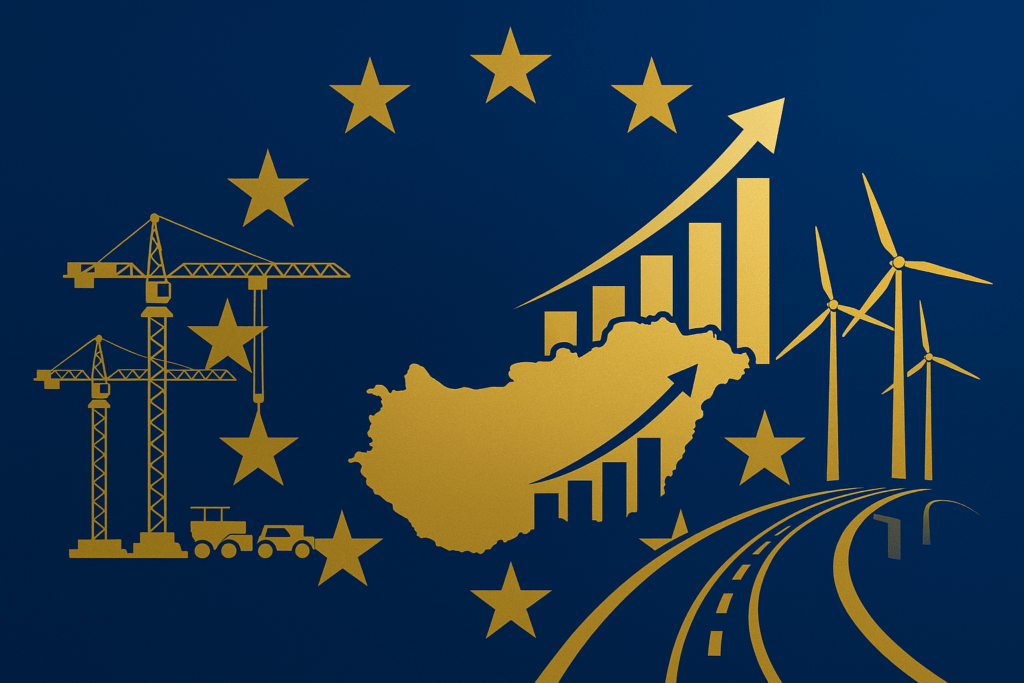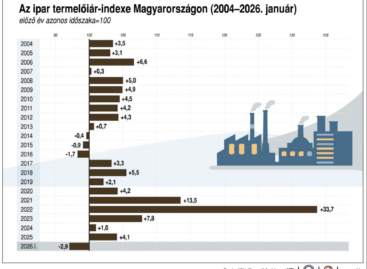GKI Analysis: Without EU funds, the domestic economy would just flounder
On May 1, Hungary marks the 21st anniversary of joining the European Union. Beyond hard-to-measure benefits like duty-free exports, capital inflows, and labor mobility, EU financial support has had a major, quantifiable impact on the national economy.
 Between 2004 and 2023, Hungary received a net €67.8 billion in EU funds—equivalent to 26% of the country’s 2024 GDP. This amount exceeds the volume of a full year’s domestic investment. On average, EU transfers accounted for 2.8% of GDP annually, rising to 3.5% after 2010.
Between 2004 and 2023, Hungary received a net €67.8 billion in EU funds—equivalent to 26% of the country’s 2024 GDP. This amount exceeds the volume of a full year’s domestic investment. On average, EU transfers accounted for 2.8% of GDP annually, rising to 3.5% after 2010.
According to calculations by the GKI Economic Research Institute, EU funding boosted GDP growth by an average of 1.4 percentage points per year. Without this support, the Hungarian economy would have grown at just 0.7% annually. In some years (such as 2010, 2011, and 2013), the economy’s entire growth was attributable to EU support, which also helped soften downturns during recessions.
In addition to economic growth, EU funds have reduced the burden on the national budget. For example, direct payments to farmers and co-financed education wage hikes replaced what would otherwise have been government spending. Infrastructure investments, energy upgrades in public institutions, R&D projects, and labor market programs (e.g. youth employment initiatives) were largely covered by EU programs.
Furthermore, about 40% of net EU funding between 2010 and 2023 ended up as government revenue, resulting in a net annual budget gain equal to 2.5% of GDP—after accounting for national co-financing.
While inefficiencies and cost overruns did occur, the economic benefits of EU membership are undeniable. EU funding has acted as a key driver of Hungarian economic development over the past two decades.
Related news
KSH: In January 2026, industrial producer prices were on average 2.9 percent lower than a year earlier and 0.9 percent higher than the previous month
🎧 Hallgasd a cikket: Lejátszás Szünet Folytatás Leállítás Nyelv: Auto…
Read more >The economic sentiment index deteriorated in the euro area and the EU in February, but improved in Hungary
🎧 Hallgasd a cikket: Lejátszás Szünet Folytatás Leállítás Nyelv: Auto…
Read more >Related news
Festival buzz at the 60th anniversary EuroShop trade fair
🎧 Hallgasd a cikket: Lejátszás Szünet Folytatás Leállítás Nyelv: Auto…
Read more >Historic price reduction at ALDI
🎧 Hallgasd a cikket: Lejátszás Szünet Folytatás Leállítás Nyelv: Auto…
Read more >A stable compass in the Hungarian FMCG sector for 20 years
🎧 Hallgasd a cikket: Lejátszás Szünet Folytatás Leállítás Nyelv: Auto…
Read more >









